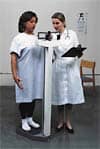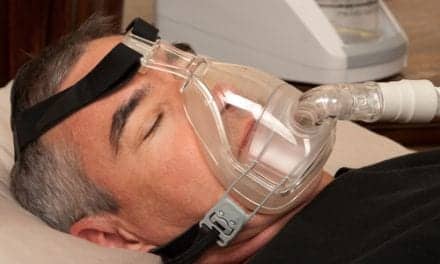Home testing of obstructive sleep apnea (OSA) followed by initiation of home treatment with an auto-titrating continuous positive airway pressure (AutoCPAP or APAP) device reduced costs compared with in-laboratory testing and titration without negatively impacting clinical outcomes, researchers have shown. This according to a new study presented at the American Thoracic Society International Conference.
“While the use of home testing and initiation of CPAP therapy is increasingly common, studies of its cost-effectiveness are scarce,” says lead author Charles W. Atwood, Jr, MD, associate professor of medicine at the University of Pittsburgh School of Medicine and director of the Sleep Disorders Program of the VA Pittsburgh Healthcare System, in a release. “In our randomized study, sleep-related costs were substantially lower for patients who underwent home testing and treatment initiation than for those who underwent laboratory testing, and this cost saving was accomplished without sacrificing clinical quality.”
The study enrolled 296 subjects, 113 of whom began CPAP at home and 110 of whom began in a laboratory. Assessment with the Functional Outcomes of Sleep Questionnaire, a disease-specific quality of life questionnaire designed to assess the impact of sleep disorders on activities of everyday living and the extent to which these abilities are improved by treatment, showed no significant difference in outcomes between groups.
Costs, categorized as sleep-related, pharmaceutical, laboratory, hospital, and other costs, were measured over 2.75 years. The cost of home testing was significantly lower than the cost of lab testing ($4,057 vs $4,621, p=0.01). Costs did not significantly differ between groups for the other categories.
“Our study confirms that home testing and treatment initiation for sleep disorders can be accomplished cost-effectively without negatively affecting clinical outcomes,” Atwood says. “These results support the continued use of home management of these disorders.”




